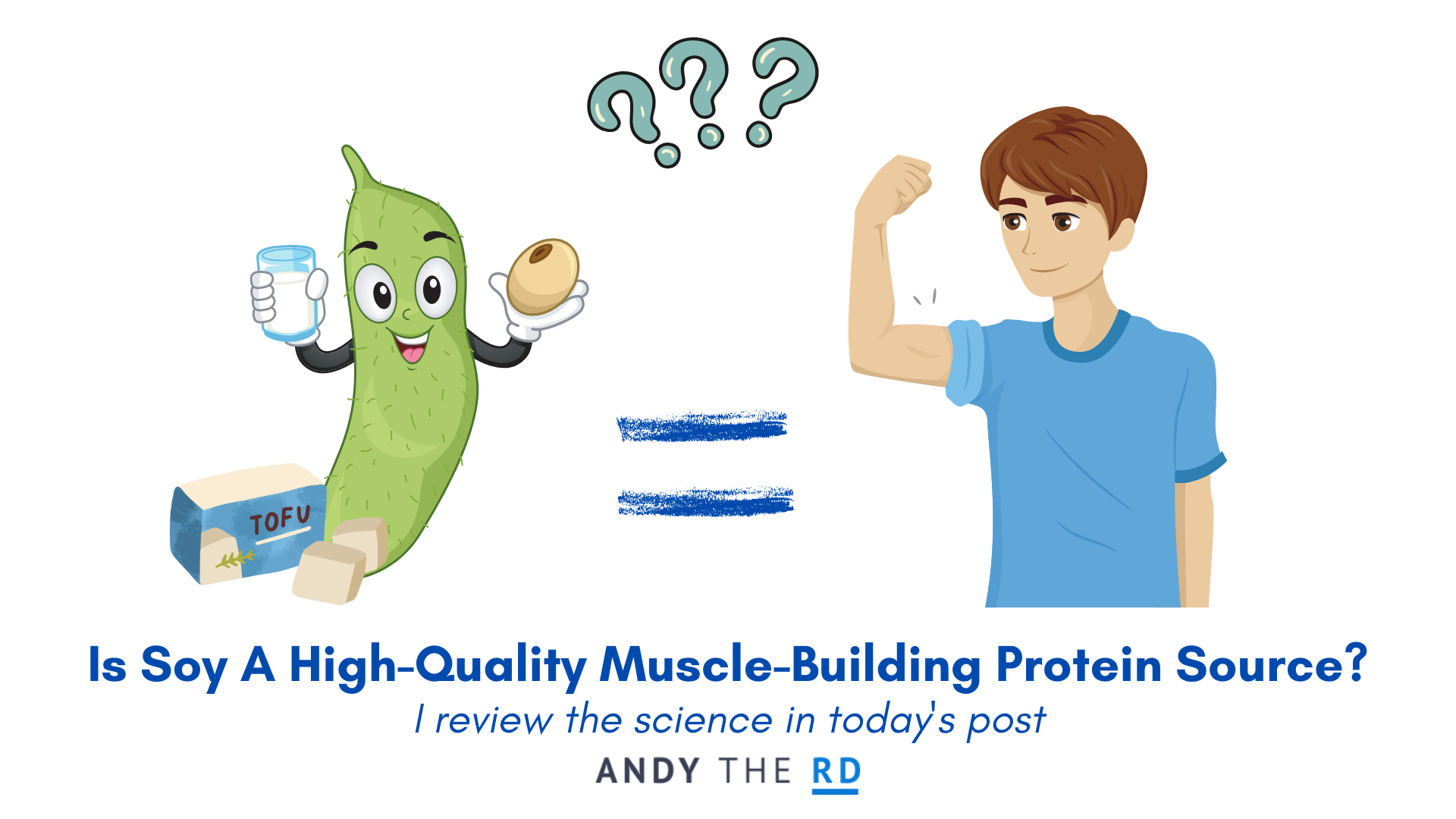My Men’s Health Month collaboration with the Soy Nutrition Institute (SNI) Global continues today with a discussion on the value and quality of soy protein as a muscle-building tool.
Last week, I discussed the interaction between soy foods and male testosterone, identifying that the available evidence suggests this family of foods does not affect testosterone levels.
Today, I shift my gaze from myth-busting to highlighting one of the truly valuable aspects of soy foods: Soy protein.
There are a relatively limited number of foods that contain significant amounts of complete plant-based protein, and soy foods such as tofu, tempeh, edamame, and soymilk are high on that list.
Let’s take a closer look at its value from the nutrition and muscle-building perspective.
The Soy Protein Content Of Common Foods
As with most things in the nutrition world, both quantity and quality matter.
What we know is that individuals engaged in resistance training have significantly higher protein requirements than sedentary individuals.
So, the first question to ask is “can soy contribute meaningfully to one’s protein targets?”
The answer is yes, as demonstrated by approximate protein values for some common soy foods listed below:
Tofu (3 oz.) – 6-13 grams
Tempeh (3 oz.) – 11-17 grams
Edamame (1/2 cup) – 9-11 grams
Soymilk (1 cup, 250ml) – 7-8 grams
Soy-Based Meat Alternatives (1 patty) – 9-16 grams
For reference, a 4 oz patty of beef has 19 grams of protein per serving.
The quantity is there.
Let’s look at quality next.
The Quality Of Soy Protein
Over time, scientists have created various methods to determine the “quality” of a protein source.
Quality generally refers to how digestible the protein source is and how closely it fulfills human amino acid requirements.
One such method, known as the protein digestibility corrected amino acid score (PDCAAS), shows that soy protein has a very similar score to beef and a score that is quite a bit higher than other plant proteins like pea protein.
Using another more recent scoring method, the Digestible Indispensable Amino Acid Score DIAAS, shows similar results.
Each of these scoring systems has its strengths and limitations, but the takeaway here is that soy protein consistently scores on par with animal protein.
This data is a clear indication that, as far as scientists measure protein quality, soy protein has the characteristics to compete.
But does this translate to muscle building in the real world? Let’s finish strong and find out.
Soy Protein For Muscle Building
In this section, we’ll take a look at some human studies examining soy protein intake compared to other popular protein sources in terms of how it interacts with the ability to build muscle.
Whey protein is a milk-based protein that is often used in supplemental form, particularly in the resistance training community.
It is generally understood that in the post-workout period, whey protein stimulates muscle protein synthesis more than other types of protein, including casein (another milk protein) and soy.
However, that says nothing, about the ability of soy protein to contribute to muscle growth over time.
To better answer that question, I turn to a 2018 meta-analysis published in the International Journal Of Sports Nutrition And Exercise Metabolism which looked at several studies comparing different protein types over extended time periods ( >6 weeks).
All else being equal, this study showed that over an extended period both soy and whey protein contributed equally to strength and mass gain – which is precisely the finding we would expect given the high quality of soy protein.
Soy Foods – An Effective Protein Source
When it comes to muscle building, both the quality and quantity of protein one consumes are relevant. Soy foods perform well in both regards, delivering high-quality protein in meaningful quantities that can play a significant role in your muscle-building routine.
Andy De Santis RD MPH
This post is in collaboration with the Soy Nutrition Institute (SNI) Global, an organization leading the way in soy and health research and education, and U.S. Soy.
Does Soy Lower Testosterone? – Andy The RD



